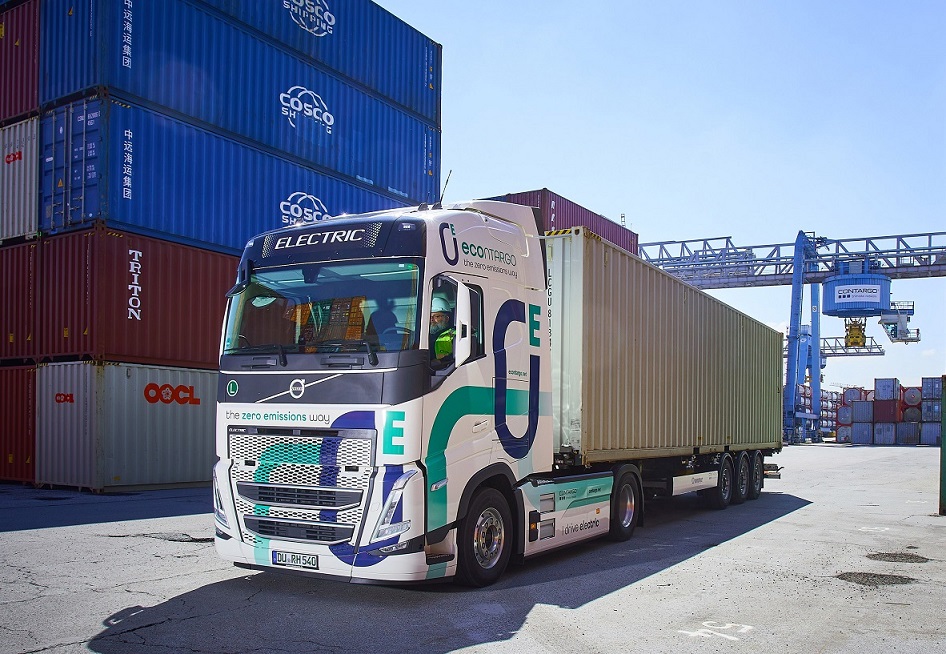Contargo is one of the biggest container logistics enterprises in Europe. Over the past months the enterprise has continued to expand its network in the Benelux countries with the takeover of HE-Logistics, Transport Clynhens, Honkoop Barging and Berry Logistics.
With these acquisitions, Contargo is also strengthening combined transport, with the aim of making a significant contribution to climate protection in the transport sector. Today, the enterprise already transports 69 percent of goods by barge, 23 percent by rail and eight percent by truck. In 2020 Contargo’s transports using all three transport modes generated 189,000 tonnes of CO2., whereas these same transports carried out by truck alone would have emitted 350,000 tonnes of CO2. Thus it was possible to save 46 percent of CO2 within one year, just by using combined transport.
E‑trucks save CO2
However, that is not enough for Contargo: for some months now, the service provider has been offering a transport chain with even lower emissions, marketed under the name of “econtargo”. Customers who book this service are not purchasing mere compensation – they are securing combined transport that uses e‑trucks for the last mile, and trains driven by green electricity for the main run. With this low-emissions option Contargo offers its customers an opportunity to reduce their own CO2e footprint.
Modern barges
In future, barges are also to be to be integrated into “econtargo”. From 2024, Contargo will be completing the electrically-powered supply chain with low-emission barges driven by a combination of hydrogen fuel cells, modern Stage VI engines and electric batteries.
Contargo will be presenting these and other topics in Hall 4, Stand 4.122 at the Transport & Logistics in Antwerp.
With an annual transport volume of 2.1 million TEU, Contargo is one of the largest container logistics networks in Europe. Contargo integrates container transport between the western seaports, the German North Sea ports and the European hinterland. Contargo has 24 container terminals at its disposal in Germany, France and Switzerland and additional locations in Germany, the Netherlands, Belgium and Poland. The enterprise also operates its own barge and rail lines. In 2022 the workforce of more than 1,200 employees achieved a turnover of 711 million Euro.

